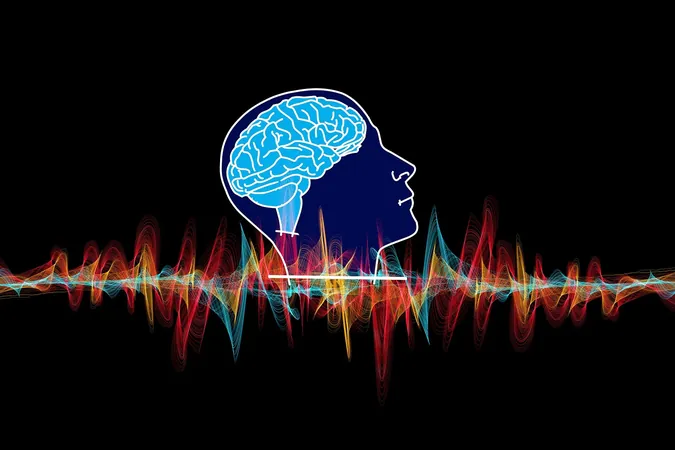
Essential Blood Tests to Detect Heart Attack Risks in Your 20s: Don’t Wait Until It’s Too Late!
2024-12-31
Author: Yu
Heart attacks are no longer a concern exclusive to the older generation; recent studies show a disturbing trend: people in their 20s are increasingly susceptible. With heart disease now ranking among the leading causes of death globally, it’s time to take your cardiovascular health seriously. Here’s a breakdown of the top 5 blood tests every young adult should consider to detect potential problems early on.
A heart attack occurs when the blood flow to the heart is abruptly interrupted, leading to significant damage to heart cells and possibly fatal outcomes. Knowing the right tests can mean the difference between a health crisis and informed prevention.
5 Crucial Blood Tests for Heart Health in Your 20s
1. **Lipid Profile** This comprehensive test evaluates your cholesterol levels, measuring both LDL (the “bad” cholesterol) and HDL (the “good” cholesterol), along with triglycerides. Elevated LDL can result in plaque buildup in arteries, dramatically increasing your risk of heart disease.
2. **Blood Glucose Levels** Monitoring blood sugar levels is vital as fluctuations can indicate diabetes or prediabetes—two conditions that considerably elevate the risk of heart problems.
3. **C-reactive Protein (CRP)** A marker for inflammation, high CRP levels may signify an increased risk of cardiovascular diseases. This test helps identify underlying conditions that could lead to heart issues.
4. **Homocysteine Levels** High levels of homocysteine, an amino acid, can damage blood vessels, contributing to a higher likelihood of heart attacks. Testing for this can be a key step in heart health assessment.
5. **N-terminal pro b-type Natriuretic Peptide (NT-proBNP)** This test provides insights into how well your heart is functioning and can signal the presence of heart failure or other cardiac issues.
Take Control of Your Heart Health with Lifestyle Modifications
In addition to these tests, it’s crucial to adopt healthy habits that protect your heart. If you notice symptoms such as chest pain or trouble breathing, seek medical attention immediately. In the meantime, here are some lifestyle changes to consider that can strengthen your heart:
- **Quit Smoking:** Say goodbye to tobacco to significantly lessen heart disease risk.
- **Limit Alcohol Consumption:** Moderation is key; excessive drinking can lead to high blood pressure and other heart issues.
- **Exercise Regularly:** Aim for at least 150 minutes of moderate-intensity aerobic activity weekly to keep your heart in check.
- **Manage Stress Levels:** Practice relaxation techniques like meditation or yoga to lower stress, a known risk factor for heart disease.
- **Monitor Your Blood Pressure:** Regular check-ups can help you maintain healthy levels.
Your heart is the engine that powers your body, supplying every cell with oxygenated blood. Ignoring the signs of potential heart problems can lead to disastrous consequences. To ensure you stay ahead of heart disease, consult with a cardiologist and schedule these blood tests as you enter your 20s.
Don’t wait for a wake-up call—protect your heart and invest in your health today!

 Brasil (PT)
Brasil (PT)
 Canada (EN)
Canada (EN)
 Chile (ES)
Chile (ES)
 Česko (CS)
Česko (CS)
 대한민국 (KO)
대한민국 (KO)
 España (ES)
España (ES)
 France (FR)
France (FR)
 Hong Kong (EN)
Hong Kong (EN)
 Italia (IT)
Italia (IT)
 日本 (JA)
日本 (JA)
 Magyarország (HU)
Magyarország (HU)
 Norge (NO)
Norge (NO)
 Polska (PL)
Polska (PL)
 Schweiz (DE)
Schweiz (DE)
 Singapore (EN)
Singapore (EN)
 Sverige (SV)
Sverige (SV)
 Suomi (FI)
Suomi (FI)
 Türkiye (TR)
Türkiye (TR)
 الإمارات العربية المتحدة (AR)
الإمارات العربية المتحدة (AR)